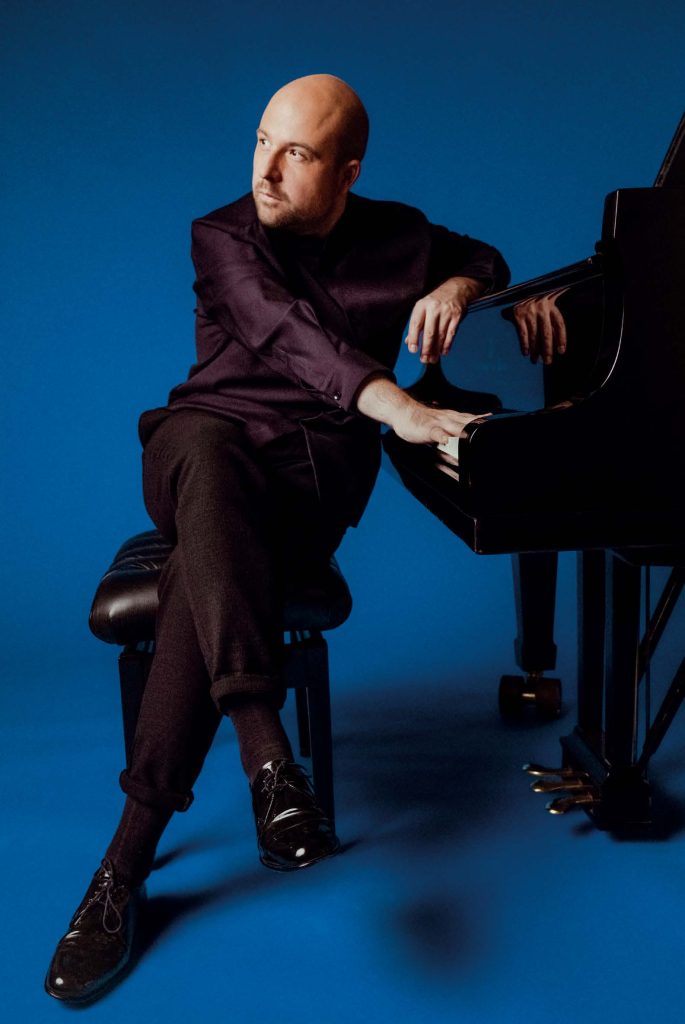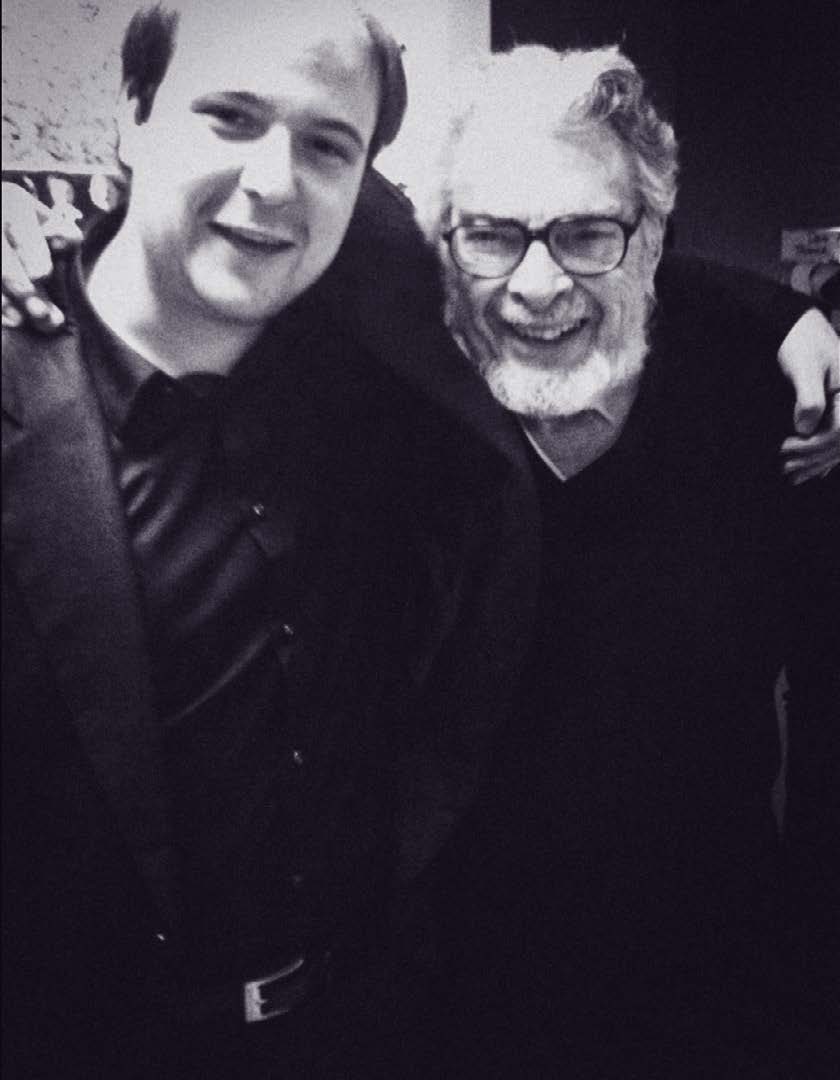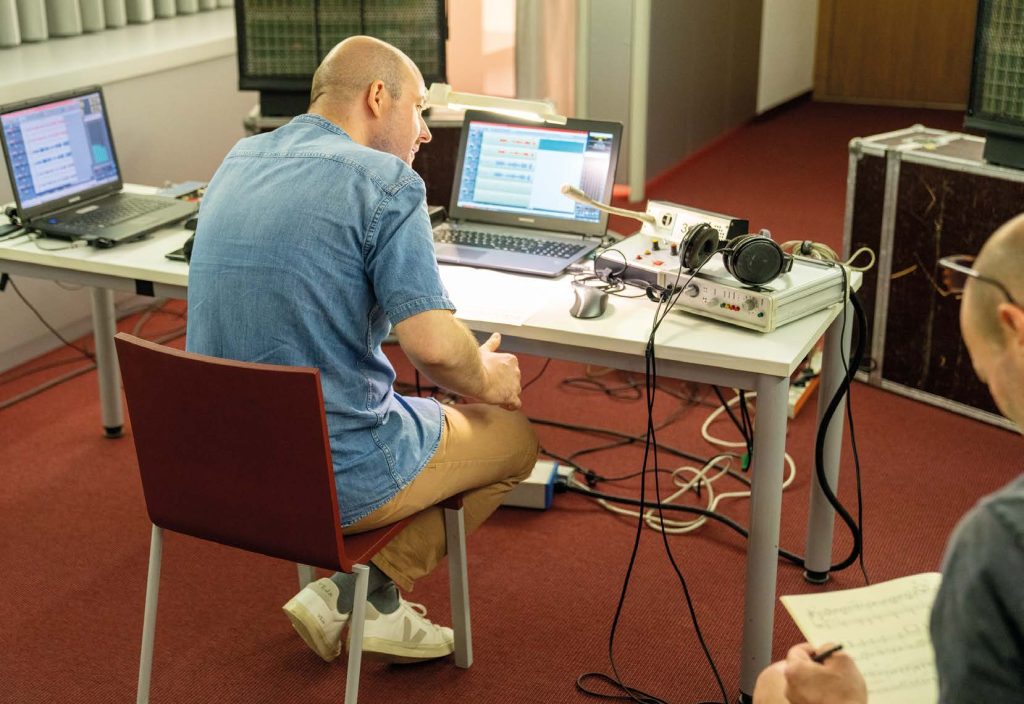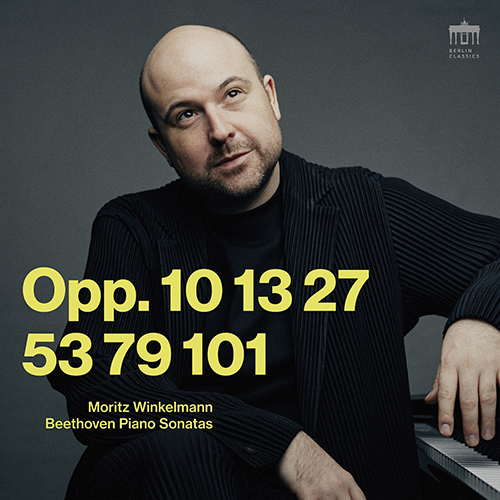A Life with Beethoven – Moritz Winkelmann
What does it take to get a true grip on Beethoven? A winner of the Beethoven Competition in Bonn, pianist Moritz Winkelmann has built a formidable reputation for his Beethoven interpretations, shaped by a lifetime of immersion in the works and instruction from the legendary Leon Fleisher. Eric Schoones from the German/Dutch magazine PIANIST had a conversation with him.
 Moritz Winkelmann has been fascinated by Beethoven since his childhood, first of all through his grandfather and later through his studies with Leon Fleisher, who bore the fire of the legendary Artur Schnabel within him and opened the door to the Beethoven’s marvellous cosmos of 32 piano sonatas for Winkelmann. The first three CDs of his complete recording have already been released – and testify to his great affinity for the composer. He lets the music speak for itself, purely and sincerely. An experience.
Moritz Winkelmann has been fascinated by Beethoven since his childhood, first of all through his grandfather and later through his studies with Leon Fleisher, who bore the fire of the legendary Artur Schnabel within him and opened the door to the Beethoven’s marvellous cosmos of 32 piano sonatas for Winkelmann. The first three CDs of his complete recording have already been released – and testify to his great affinity for the composer. He lets the music speak for itself, purely and sincerely. An experience.
Recording all of Beethoven’s sonatas is no easy task. When did you decide to do it?
I made the conscious decision to do so when the opportunity arose in 2023. Subconsciously, it was most certainly a long process of gestation that began sometime in my childhood and became one of my major pianistic goals when I was in my twenties. I am now almost 40; I have been working on Beethoven’s music for most of my life and have played most of the sonatas before. If you wait until you feel you’re ready, you’ll never do it. You’ll probably never feel that way. Besides, we only have one life and we have to decide how to spend the time we have. I have a tight schedule for the recording, as the boxed set of all 32 sonatas is due to be released in 2027 to mark the 200th anniversary of Beethoven’s death. A certain amount of time pressure is not unhealthy, though. You are forced to make decisions. At the same time, pieces like the slow movement of the ‘Hammerklavier’ Sonata need time to mature. It is important to me to have played all the sonatas in concert before I record them. A ‘theoretical’ version is not my aim.
Do you think you’ll feel the urge to record them all again in ten years’ time?
Maybe, why not! In any case, it helps to bear in mind that it will always be a snapshot. I’m not writing my will here. You still have to be able to make music freely and without inhibitions. No matter how well thought-out the interpretation is when you go into the recording session, you still need spontaneity and elasticity to allow the music to breathe. In the first year of my studies with Leon Fleisher, we played all the sonatas in a single day with his class. There were six of us students and we played our ‘Beethoven marathon’ non-stop from 10 in the morning until 1 at night. He has done this a couple of times when he felt he had the right calibre of students for the task. It was an incredible experience; the chronology of the sonatas never ceases to fascinate me!
It was your grandfather who introduced you to Beethoven.
He was a pianist and choir conductor, and I worked with him a lot between the ages of six and eleven. He once had lessons with Wilhelm Kempff and Edwin Fischer, and often talked to me about music. That made a big impression, because he passed on his insights to me. And when Beethoven had already become the centre of my musical thinking, I knew that I wanted to study with Leon Fleisher in Baltimore. But what may have captivated me even more at that time was Fleisher’s recording of Brahms’s First Concerto with George Szell and the Cleveland Orchestra.

Moritz Winkelmann with Leon Fleisher in 2013, after a performance of Beethoven’s First Piano Concerto in Baltimore with the Peabody Symphony Orchestra conducted by Fleisher
When I think of Leon Fleisher, it’s always his mental strength that comes to mind. Focal dystonia prevented him from playing with his right hand for years. But he tried every morning, and hoped for a miracle.
He was incredibly strong and never felt sorry for himself. He discovered that it wasn’t the use of his two hands per se that made him a musician. His inner strength and his uncompromising dedication to music were incredibly inspiring. It’s very difficult for me to put into words what made his playing so moving. He had an infinitely deep, resonant sound. Warm and brilliant at the same time. Since that time, I have never heard a sound that has touched me as profoundly, even if he only played a single chord! You hear this only to a limited extent on the recordings.
I remember that Fleisher once played the slow movement of the Sonata Op. 10 No. 3 during a lesson. We were deeply moved. Fleisher could speak at the piano. His playing through infinite nuances and the way each interval was subject to the laws of nature. Sometimes it was almost as if you were hearing a glissando between two notes. He saw a strong connection between musical processes and physical laws. The magic came from a combination of all this, he called it ‘an experiment in anti-gravity’. He could talk about music in a very imaginative way. In class, I often had the feeling that it was more than just inspired advice. It felt like truth.
At the same time he was also very modest.
Oh yes, in every lesson he mentioned his teacher Artur Schnabel; even in his old age he still felt as if he was Schnabel’s pupil. Schnabel and Beethoven are now two people who have been in my thoughts every day for decades. Fleisher felt 100 per cent committed to the musical text. But he also said: ‘We all look at the same page and see very different things.’ That was something of a key moment for me. He interpreted the score with his unique imagination, but never contradicted the source material. I feel this philosophy very strongly within me. I have to find out as objectively as possible what Beethoven wanted to say in his music before I interpret it. I want to let the music have its effect on me with as ‘clean ears’ as possible, actually very naively and openly. That’s why I hardly ever listen to other recordings; only occasionally, when I’ve been working on something for weeks, do I ask myself what solutions Alfred Brendel or András Schiff – whose contributions are truly magnificent – have found.
Does the influence of the teacher-pupil line, leading from Fleisher via Schnabel, Leschetitzky and Czerny directly to Beethoven, still play a role?
We can’t know exactly what influence each teacher had on each pupil. I am very aware of this tradition and this link, and feel both indebted to and also inspired by it. But I think it’s going too far to infer some kind of authority from it. I hold principles and ideals that I acquired from Fleisher and that I know with certainty he learned from Schnabel. Further back, it increasingly becomes conjecture. But it is a nice thought that there is something like an unspoken, common thread that runs through the generations. It is certainly a tradition in music-making and interpretation not to elevate oneself above the composer, but to regard his work and his score as the highest authority.
Therefore we should not attempt to imitate Schnabel’s style. That would be totally wrong because, like everyone else, he exploited his spontaneity when making music. Rather than imitating, it is better to be guided by the thoughts and the metaphysical aspects of these great musicians’ playing and to try to distil what can be incorporated into your own musical thinking, which you can then try to carry forward. It is about developing your own idiom on the basis of your own personality. In this way, it is a tradition that focuses not on the past but on the future.
And the teacher-student line may also be relevant to me on another level. Now that I have set myself the task of recording all the sonatas, I feel that these people are there behind me; perhaps advising me, perhaps encouraging me – and certainly full of expectations.

Beethoven’s legacy is, of course, unique in the world of music.
I believe he surpasses other composers in this regard. He created something universal. He left something great to the world and gave an identity to those members of society who were and are open to it. I think he was well aware of that. He had a goal, a mission. He didn’t just write something like the Ninth Symphony on a whim. He devoted his whole life to composition.
Whether he was able to see the transcendental element in his late string quartets as something separate from his own personality, I don’t know. It is unmistakably his work, but his music also speaks for and about all of us. Its emotional impact is made very clear by its structure; you can’t approach or understand this music purely on an emotional level, because it wasn’t composed that way. Beethoven worked like an engineer, he constructed things. Haydn did that to a certain extent too; Mozart, on the other hand, rather less so. He was intuitive and direct. I also believe that one must first study and understand the uniqueness of each Beethoven sonata, how he conceived and ultimately created it with its proportions, irregularities and contrasts. This was all done very consciously. That’s why these sonatas are unique. Beethoven continued to develop until the end; in this sense he really is the archetype of the artist who strives for progress, never gives up and always creates something new. A role model, and a guide for our time.
— ERIC SCHOONES
This article is a contribution from the German and Dutch magazine Pianist through Piano Street’s International Media Exchange Initiative and the Cremona Media Lounge.
 Pianist Magazine is published in seven countries, in two different editions: in German (for Germany, Austria, Switzerland, Luxemburg and Liechtenstein) and in Dutch (for Holland and Belgium).
Pianist Magazine is published in seven countries, in two different editions: in German (for Germany, Austria, Switzerland, Luxemburg and Liechtenstein) and in Dutch (for Holland and Belgium).
The magazine is for the amateur and professional alike, and offers a wide range of topics connected to the piano, with interviews, articles on piano manufacturers, music, technique, competitions, sheetmusic, cd’s, books, news on festivals, competitions, etc.
For a preview please check: pianist-magazin.de or www.pianistmagazine.nl
This feature is available for Gold members of pianostreet.com

Play album >>
Comments